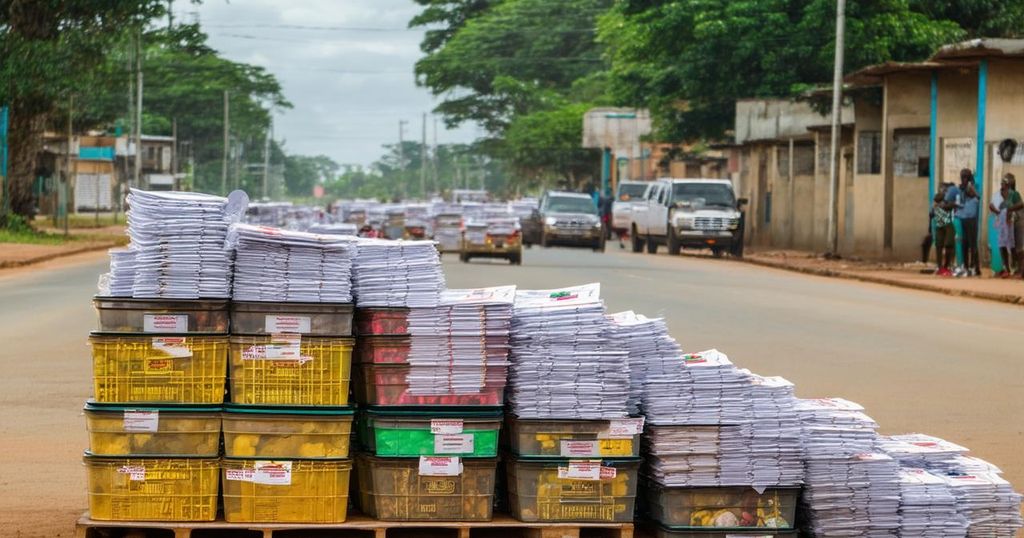Mozambique’s Presidential Election Results Amid Fraud Allegations

Daniel Chapo of the Frelimo party has been declared the winner of Mozambique’s presidential election, securing over 70 percent of the votes. This announcement comes amid allegations of electoral fraud from opposition candidates, particularly Venancio Mondlane. The Frelimo party has maintained power for nearly 50 years, and the political climate remains tense following recent violence against opposition figures.
In the recent presidential elections held in Mozambique, the ruling party’s candidate, Daniel Chapo of the Frelimo party, has been officially declared the victor, securing over 70 percent of the votes as confirmed by the National Election Commission (CNE). This announcement comes amidst serious allegations of electoral fraud raised by opposition factions. Chapo’s nearest rival, independent candidate Venancio Mondlane, received slightly more than 20 percent of the votes, followed by Renamo party candidate Ossufo Momade, who garnered over five percent. The electoral outcome marks a continuation of Frelimo’s longstanding grip on power, which has persisted for nearly five decades since Mozambique achieved independence from Portugal in 1975. Daniel Chapo, age 47, is set to assume office in January as the first president born post-independence. Mondlane, backed by the opposition Podemos party, has openly challenged the integrity of the election process, claiming that significant manipulations took place to favor Frelimo. He has called for nationwide protests against what he describes as Frelimo’s authoritarian rule. Demonstrations have been exacerbated by the recent killings of two opposition officials, prompting accusations from Mondlane towards the security forces for their involvement. Despite Frelimo’s denials regarding any electoral impropriety, observers from the European Union noted interference with election monitoring and presented evidence of “unjustified alteration” of results in several polling stations. The situation in Mozambique remains tense, reflecting the fractured political landscape and the ongoing struggle for power between the ruling party and opposition forces.
Mozambique has experienced a tumultuous political history characterized by deep-rooted conflict and the dominance of the Frelimo party, which has governed since independence from Portugal in 1975. The nation endured a brutal civil war that solidified the divide between Frelimo and the Renamo party, which later emerged as the principal opposition group. With a population of approximately 33 million, Mozambique has faced significant political challenges, including allegations of election misconduct and violence against opposition figures, underscoring the need for a transparent electoral process. The recent elections have intensified scrutiny of Frelimo’s practices and raised concerns regarding the overall stability of Mozambique’s democracy.
The declaration of Daniel Chapo as the winner of Mozambique’s presidential election has reignited meaningful discussions about electoral integrity and the political climate within the country. As allegations of fraud persist and opposition leaders mobilize for protests, the future political landscape is uncertain. The findings from independent observers highlight the necessity for improvement in the electoral process to ensure it reflects the will of the people. Ultimately, how the government responds to these challenges will significantly shape Mozambique’s democratic trajectory.
Original Source: www.aljazeera.com







